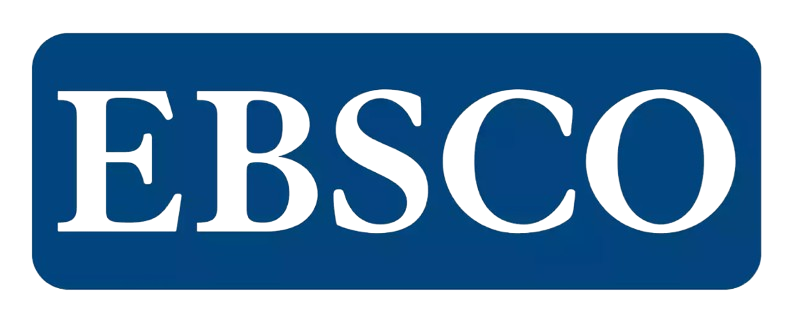The Relationship Between Student Leadership’s Development Program and Capacity Building Toward The Student Empowerment Program
DOI:
https://doi.org/10.52751/cmujs.2025.v1.assdhm73Keywords:
Student Leadership Development, Leadership Capacity, Student Empowerment Program, Capacity BuildingAbstract
The study aims to explore the relationship between student leadership development program and student leadership capacity building leading to the creation of a Student Empowerment Program to enhance students’ industry readiness and quality of life. It examines respondents' profiles, their assessments of student leadership development programs implemented in universities in Yantai City, Shandong Province, and the relationship between these programs and career success regarding leadership capacity-building dimensions (Personal, Interpersonal, Organizational). The researcher employed a descriptive-correlational research design, composed of 537 respondents from three selected universities. The study found that student leadership development programs have a strong and positive impact on students' leadership capacity building. These programs enhance personal, interpersonal, and organizational skills, preparing students for professional challenges. However, further improvement in fostering collaboration, offering balanced feedback, and tracking long-term progress is needed. The findings emphasize the need to design a comprehensive Student Empowerment Program to enhance leadership capabilities and career preparedness.
Downloads
References
Astin, A. W., Vogelgesang, L. J., Ikeda, E. K., & Yee, J. A. How service learning affects students. Jossey-Bass, (2019).
Bai, B.; Li, M.; Lyu, X. Sustainable career and employability of student leaders in China. Front. Psychol. 2022, 13, 1033401. Available online: https://doi.org/10.3389/fpsyg.2022.1033401 (Accessed on 4 January, 2025)
Brown, A. C., & Thompson, L. M. (2019). Leadership programs and their place in student affairs. Journal of Student Affairs Research and Practice, 56(1), 34-48.
Buskey, F. C. Developing purpose-driven leaders: A conceptual model for leadership development. Journal of Leadership Education (2020). 19(2), 22-35.
Chinese Student Leadership Program (CSLP) - Office of China Programs - Missouri State. (n.d.). https://china.missouristate.edu/CSLP.htm?utm_source
Davis, P., & Fegley, R. Developing career-ready graduates: The role of leadership programs in higher education. Journal of Career Development (2020), 47(3), 245-260.
Garcia, A. M., & Patel, R. S. (2021). The impact of leadership development on career advancement and leadership roles. Journal of Leadership Studies, 14(3), 289-304.
Garcia, R. S., & Martinez, P. A. (2020). Integrating leadership development into the curriculum: A comprehensive framework. Journal of Higher Education Theory and Practice, 20(4), 18-34.
Hilts, D., Liu, Y., Li, D., & Luke, M. (2022). Examining ecological factors that predict school counselors’ engagement in leadership practices. Professional School Counseling, 26(1). https://doi.org/10.1177/2156759x221118042
Jaymalin, Mayen. DOLE: Most of the unemployed are educated (2019). Retrieved from https://www.philstar.com/headlines/2019/01/02/1881616/dole-most-unemployed-are-educated
Lee, J. Early career leadership programs: Building skills for professional success. Leadership & Organizational Studies (2024), 31(1), 75-89.
Matahela, V.E., & van Rensburg, G.H.. An autonomy-supportive climate for facilitation of self-leadership in health sciences educators. Health SA Gesondheid, 28, (2023). https://doi.org/10.4102/hsag.v28i0.2308
Martinez, N. D., Sowcik, M., & Bunch, J. C. (2020). The impact of leadership education and co-curricular involvement on the development of socially responsible leadership outcomes in undergraduate students an exploratory study. Journal of Leadership Education, 19(3), 32-43. https://doi.org/10.12806/v19/i3/r3
Morris, M. L., Hemer, K. M., Hossfeld, E. L., & Wood, L. N. Student leadership development: A longitudinal examination of purpose. Journal of Leadership Education (2020), 19(3), 73-90.
Muchtar, Y., Absah, Y., Sadalia, I., & Siahaan, E. (2022). The role of innovative work behaviour as the mediator between inclusive leadership and subjective career success.. https://doi.org/10.2991/aebmr.k.211226.029
O’Neil, D. A., Hopkins, M. M., & Bilimoria, D.. Leadership development and career readiness: Examining the link between training and workforce outcomes. Human Resource Management Journal (2019), 29(2), 112-130
Paganin, G., Avanzi, L., Guglielmi, D., Hera, C. M. A. d. l., & Mazzetti, G. (2023). How emotional contagion among teachers affects the relationship between transformational leadership and team cohesion. Behavioral Sciences, 13(8), 685. https://doi.org/10.3390/bs13080685
Putri, R. A., Wahyuni, D., & Santoso, T. Career readiness instruments and their impact on student leadership training programs. Journal of Educational Leadership Research (2022), 19(4), 327-341.
Sholikah, M., Rahman, F., & Widodo, A. Structured leadership training and its effect on students’ transition to the workforce. Journal of Applied Psychology and Leadership (2021), 14(3), 198-213.
Smith, J. M., & Rodriguez, A. Positioning student leadership development within higher education institutions. Journal of Higher Education Administration (2019), 20(2), 45-58.
Soria, K. M., Kaste, K., Diekemper, K. M., Blamo, M., Belrose, M. R., & Brazelton, G. B. (2020). Enriching college students’ leadership efficacy. Journal of Leadership Education, 19(4), 87-98. https://doi.org/10.12806/v19/i4/r7
Tynjälä, P. (2022). Workplace learning from the organizational point of view. In Research Approaches on Workplace Learning: Insights from a Growing Field, Springer International Publishing. Cham. 429–450.
Wilson, A. C., & Harris, B. J. (2023). Measuring the progress of leadership programs: A framework for assessment. Journal of Assessment and Evaluation in Higher Education, 11(1), 45-60.
Yeoward, J. L. and Nauta, M. M. (2020). Perceived interpersonal influences and college-major nontraditionality as predictors of women’s leadership aspirations. Journal of Career Development, 48(6), 787-800. https://doi.org/10.1177/0894845320902268













 LinkedIn
LinkedIn